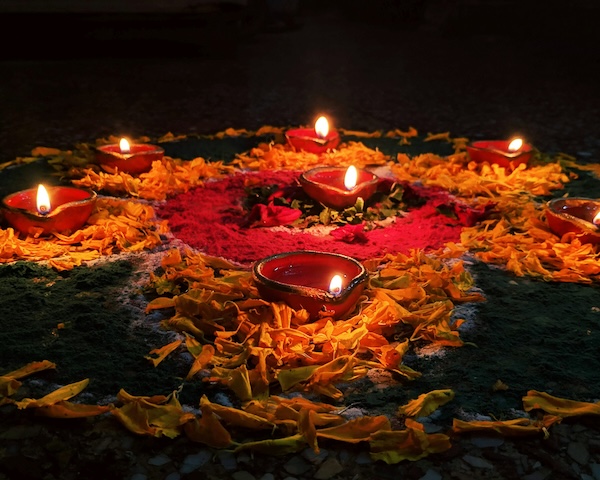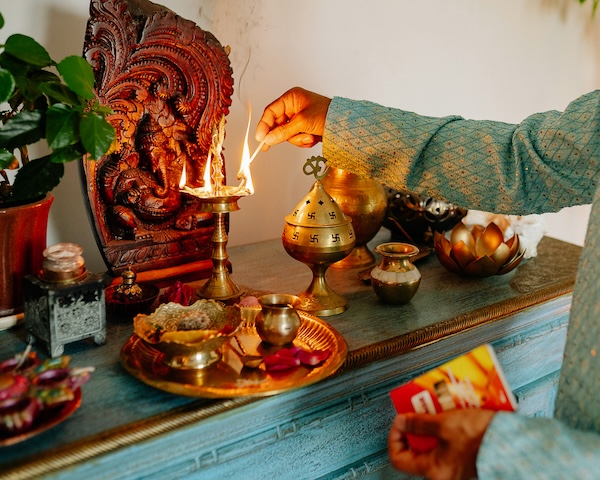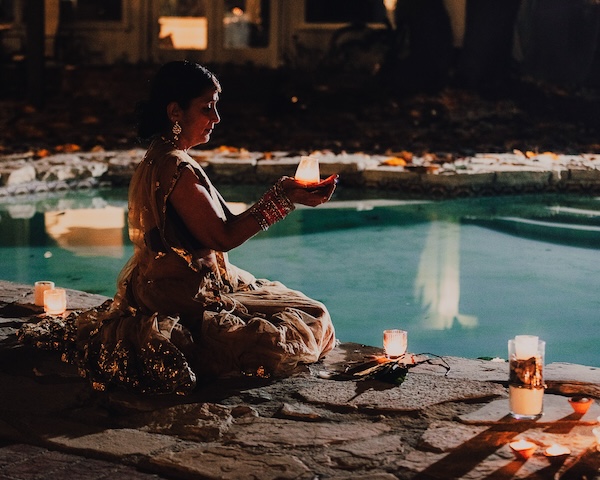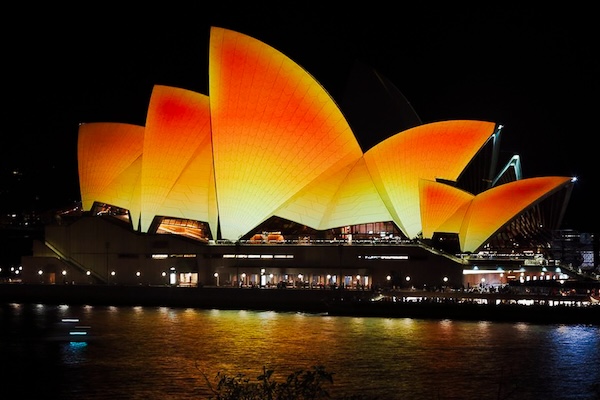Diwali, often called Deepavali or the Festival of Lights, is one of Hinduism's most significant and widely celebrated holidays. Along with Hindus, Sikhs, Jains, and Buddhists also join the festivity. Diwali is celebrated yearly, often between mid-October and mid-November, depending on the Hindu lunar calendar.
This lively holiday is enjoyed by well over a billion people all around the world, including Australia’s thriving Indian community. Let's explore the origins, customs, and global celebrations of Diwali.
If you plan on travelling this Diwali season, whether domestically or internationally, consider travel insurance in case any darkness should descend on your Festival of Lights travel plans.
What is Diwali
Diwali is a five-day celebration that commemorates the victory of light over darkness and goodness over evil. Families gather to light oil lamps, called diyas, illuminate their homes, and enjoy feasts.
The event is celebrated with bright rangoli patterns made of coloured rice or sand to bring prosperity and good luck. These colourful artworks are placed on the floor, often at the entrances to homes to encourage good luck. Fireworks are a traditional component of the celebration, but their use has been restricted in recent years due to environmental concerns.
People often clean their homes, settle old debts, and create new debts by making new purchases. Cities and towns throughout India and abroad host community parades and festivities for Diwali.
In India, Diwali also marks the end of the monsoon season and the ushering in more comfortable, mild weather.

When is Diwali
Diwali's date fluctuates each year based on the Hindu lunar calendar, usually falling between mid-October and mid-November. Diwali 2025 will be celebrated from October 18th to October 23rd, with significant celebrations on October 21st.
The festival begins with Dhanteras, a day dedicated to wealth and prosperity, and ends with Naraka Chaturdasi, which honours the defeat of the demon Narakasura. On this day, houses get cleaned and rituals are carried out to welcome the Goddess Lakshmi, a deity of wealth and purity. It's traditional to purchase gold items and enjoy modest gambling as part of the celebration.
Day two, known as Naraka Chaturdasi, commemorates Goddess Kali and Krishna's victory over the demon Narakasura. This day is frequently marked by the burning of demon sculptures and the lighting of small fireworks.
The third day, Lakshmi Puja, is the most significant. Goddess Lakshmi, the deity of wealth, is honoured and the whole festival is marked by the lighting of diya oil lamps and fairy lights, which represent light prevailing over darkness. Fireworks add to the festivities, earning Diwali the title "Festival of Lights." On this day, devotees also honour Goddess Kali and Lord Ganesha.

Govardhan Puja and Bhai Dooj follow, focusing on familial bonds and the triumph of good over evil. For many Hindus, Govardhan Puja celebrated on the fourth day, signifies the beginning of the new year. It commemorates Lord Krishna's defeat of Indra and Lord Vishnu's victory over Bali, the demon king.
The fifth day, Bhai Dooj, is a time for siblings to gather and celebrate their bond. Brothers and sisters receive gifts and share a feast, highlighting the value of family bonds throughout the festive season.

Origin of Diwali
Diwali is believed to have originated more than 2,500 years ago, most likely as an important harvest festival. Multiple stories from ancient religious texts are associated with the holiday, and the specific traditions can vary depending on the region. However, a commonality in many stories is the triumph of virtue over evil.
One generally held belief is that Diwali commemorates King Rama's return to Ayodhya after conquering the evil king Ravana. According to tradition, King Rama assembled an army of monkeys to rescue his stolen wife, Sita, who was being kept captive in Lanka (perhaps modern-day Sri Lanka). Upon their victorious return, millions of lights were ignited across Ayodhya to accompany Rama and Sita home.
Another story links Diwali with the Hindu god Krishna, who is claimed to have liberated thousands of women from the hands of another repressive ruler. Diwali also marks the marriage of Goddess Lakshmi, the goddess of wealth and purity, to Lord Vishnu. Some people also commemorate Lakshmi's birthday on the new moon of the Kartik month. Other deities honoured during Diwali include Mother Kali, the fierce goddess of strength, and Lord Ganesha, the elephant-headed deity regarded as the remover of obstacles.

Diwali around the world
Diwali is celebrated beyond India's borders, with large celebrations taking place in several nations, including Australia. Leicester, UK, holds one of the greatest Diwali festivities outside of India.
Similarly, cities across Canada and the United States have lively Diwali celebrations. In Malaysia, the celebration is known as Hari Diwali, while in Nepal it is called Tihar. It is also an important celebration in Sri Lanka, which is geographically and culturally close to India, as well as Mauritius, where half of the population is Hindu. Other countries where Diwali is prominently celebrated include Singapore and Indonesia.

Diwali in Australia
While Diwali is not a national public holiday in Australia, it is often celebrated in places with large Indian communities, such as Melbourne and Sydney. One of the most visible events takes place at Melbourne's Federation Square, with fireworks, cultural performances, and Indian street food. The 2025 Diwali festival at Federation Square will be on Saturday 11th, October from midday to 10pm. The Melbourne Town Hall will be lit up with dazzling light projections from 10 to 12 October.
Indian music, Bollywood dance, henna painting, and traditional cuisine are common features of the festivities. Some Indian businesses may close early to celebrate, and the Sydney Opera House's sails have previously been lighted up in gold to commemorate the event. Special Diwali events are also held in Canberra, Adelaide, and other cities across Australia.
Indian Festivals Calendar 2025-2026
| Festival | 2025 Date | 2026 Date |
|---|---|---|
| Holi | March 13 | March 4 |
| Eid-ul-Fitr | March 31 | March 20 |
| Ganesh Chaturthi | September 26 | September 14 |
| Onam | September 5 | August 26 |
| Durga Puja | September 30-October 4 | October 17-21 |
| Dussehra | October 2 | October 20 |
| Diwali | October 21 | November 8 |
